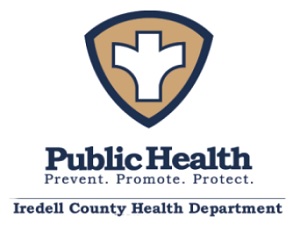
Special to Iredell Free News
The Iredell County Health Department is closely monitoring the latest developments in the global monkeypox outbreak.
Monkeypox is a rare disease caused by an orthopox virus typically found in West and Central Africa. It does not typically occur naturally in the United States. The Centers for Disease Control and Prevention (CDC) is tracking multiple clusters of monkeypox that have been reported in early to mid-May in West African countries, Europe and North America.
The CDC reports that 10 cases of monkeypox have been identified in the United States in the last few weeks. Currently, there are no known cases of monkeypox in North Carolina so there is no known immediate local risk.
However, this situation is watched closely by Iredell County public health officials and the N.C. Department of Health and Human Services. If a local case is identified, the health department will work with state and local partners to prevent further spread of the virus.
Monkeypox transmission occurs through contact with infected people either through direct contact with monkeypox virus sores, body fluids or through respiratory droplets from infected individuals. Person-to person transmission has been identified, including among close household and sexual contacts. For most of the population, monkeypox infection is a mild, self-limiting disease that lasts about a month in the absence of specific therapy.
Infection with the monkeypox virus does pose a higher risk in the immunocompromised population, in young children and in pregnant women.
The time period between infection and when you see symptoms can be between 5-21 days. During this time a person may feel fine. Symptoms are typically flu-like accompanied by swelling of the lymph nodes in the neck, arm pit or other areas progressing to widespread rash on the face and body. The painful rash changes over time.
Initially it looks like red spots that progress to fluid and pus-filled lesions before scabbing over and resolving.
There are a number of measures that can be taken to prevent transmission of the monkeypox virus. If it becomes a local concern or if one were to travel to a high-risk area where it is widespread, the prevention measures include:
• Avoid contact with animals that could harbor the virus (including animals that are sick or that have been found dead in areas where monkeypox occurs);
• Avoid contact with any materials, such as bedding, that has been in contact with a sick animal;
• Isolate infected patients from others who could be at risk for infection;
• Practice good hand hygiene after contact with infected animals or humans. For example, washing your hands with soap and water or using an alcohol-based hand sanitizer; and
• Use personal protective equipment (PPE) if caring for patients.
Anyone with symptoms should contact their healthcare provider. This includes anyone who:
• Traveled to central or west African countries, parts of Europe where monkeypox cases have been reported or other areas with confirmed cases of monkeypox during the month before their symptoms began; and
• Reports contact with confirmed or suspected monkeypox.
Currently there is no proven, safe treatment for monkeypox virus infection. For purposes of controlling a monkeypox outbreak in the United States, antivirals developed for use in patients with smallpox may prove beneficial per the CDC. There is a live virus vaccine that has been approved by the U.S. Food and Drug Administration for the prevention of monkeypox.
This vaccination has not been made available to local health departments for prevention of monkeypox at this time.
The Iredell County Health Department will keep the community informed on the status of the monkeypox situation.
MORE INFORMATION
Visit the following links:
♦ Center for Disease Control and Prevention: https://www.cdc.gov/poxvirus/monkeypox/index.html
♦ NC Department of Public Health: https://epi.dph.ncdhhs.gov/cd/diseases/monkeypox.html



